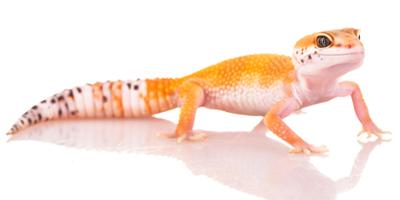Low fat, high fiber (recipes included)
A healthy diet can reduce colorectal cancer risk
BY AMBER SMITH
As we age, our risk for developing colorectal cancer increases.
A family history of colorectal cancer or polyps, of certain genetic syndromes or of an inflammatory bowel disease can also increase risk.
 Upstate colorectal surgeon Kristina Go, MD
Upstate colorectal surgeon Kristina Go, MD“Having a risk factor, or even many, doesn’t mean that you’ll necessarily get the disease,” says Upstate colorectal surgeon Kristina Go, MD. “Conversely, there’s still a chance of being diagnosed with colorectal cancer even in the absence of risk factors.”
She explains that some risk factors can be modified. You can reduce your chance of developing colorectal cancer if you are physically active, if you maintain a healthy weight, if you are not a smoker and if you are not a heavy or moderate consumer of alcohol.
Katie Krawczyk is a registered dietitian nutritionist at the Upstate Cancer Center. She says research suggests a diet low in animal fats and high in fruits, vegetables and whole grains to help reduce the risk of colorectal cancers.
“What we eat plays a crucial role in the risk of colorectal cancer. A diet high in fiber and adequate in folic acid, or folate, helps reduce our risk,” Krawczyk says.
Fiber is also known as roughage or bulk. It’s the parts of plant foods that the body does not digest — but fiber still plays an important role in the body.
“Fiber helps process food through our digestive system and on to elimination, so it reduces the time that potential carcinogens sit in the intestines. It also has anti-inflammatory properties,” Krawczyk says.
She advises shooting for 25 to 30 grams of fiber per day. Eating oatmeal for breakfast can get you started with 5 grams.
Folate is a B vitamin, an essential nutrient that’s important for cell growth. The recommended daily amount of folate for adults is 400 micrograms. Foods that are high in folate include beans, broccoli, Brussels sprouts and leafy green vegetables such as cabbage, kale and spinach. These foods also happen to be high in fiber — making them ideal foods for colon health.
 Sweet potatoes can be combined with black beans for chili.
Sweet potatoes can be combined with black beans for chili.
Recipes
Sweet potato black bean chili
Preparation
- In a large pot over medium heat, sweat onions in 1 tablespoon oil, seasoning with a healthy pinch of salt and pepper. Stir and continue cooking on medium heat until translucent and soft.
- Add sweet potatoes and any desired spices at this time. Cook for 3 minutes. Then add salsa, water and vegetable stock.
- Bring mixture to a low boil on medium high heat and then lower heat to medium-low and simmer. Add black beans, cover and cook for at least 20 minutes more, preferably 30 – or until the sweet potatoes are fork tender and the soup has thickened. This soup is at its best when prepared the night before or allowed to rest for a few hours, so the flavor fully develops.
- Serve with fresh cilantro, onion, avocado and/or lime juice. Chips make an excellent spoon.
Ingredients
1 medium yellow or white onion, diced
1 tablespoon coconut or olive oil
3 medium sweet potatoes, or about 4 cups, scrubbed clean and cut into bite-sized pieces
1 16-ounce jar chunky salsa
1 15-ounce can black beans, slightly drained
2 cups vegetable stock
2 cups water
1 tablespoon chili powder (optional)
2 teaspoons ground cumin (optional)
1/2 teaspoon ground cinnamon (optional)
1/2 teaspoon chipotle powder (optional)
1 to 2 teaspoons hot sauce (optional)
Fresh cilantro, for serving
Chopped red onion, for serving
Sliced avocado, for serving
Lime juice, for serving
Salt and pepper
Nutritional Information
Serving size: 1 bowl; recipe makes 6 servings
Calories: 213
Carbohydrates: 47 grams
Protein: 7 grams
Fat: 1/2 gram
Cholesterol: zero
Sodium: 611 milligrams
Fiber: 9 grams
Sugar: 4 grams
-- from MinimalistBaker.com
Carrot cake quinoa bowl
Preparation
- In a large saucepan, heat the quinoa and milk over medium heat.
- Once the mixture starts to simmer, add in the carrots, cinnamon and vanilla extract. Reduce the heat to low. Cover and cook for about 15 minutes, stirring occasionally.
- Add in the maple syrup, almond butter and a pinch of salt. Stir until combined and thickened.
- Pour the quinoa into 4 bowls. Top each portion with extra almond butter and toasted walnuts.
Ingredients
2/3 cup uncooked quinoa
1-3/4 cups unsweetened coconut milk and/or
almond milk
3/4 cup grated carrots
1 teaspoon cinnamon
1/2 teaspoon vanilla extract
2 tablespoons maple syrup
1 tablespoon almond butter, plus more for
topping
Pinch of salt
1/4 cup chopped, toasted walnuts
Nutritional Information
Serving size: 1 bowl; recipe makes 4 bowls
Calories: 245
Fat: 11 grams
Carbohydrates: 30 grams
Fiber: 4 grams
Protein: 7 grams
Sugar: 7 grams
Sodium: 56 milligrams
-- from DestinationDelish.com

This article appears in the summer 2021 issue of Cancer Care magazine.
Read it online at issuu.com.
Subscribe to our printed publication in the mail or to receive an emailed electronic version.





